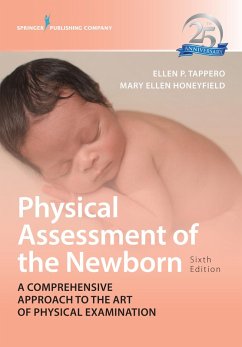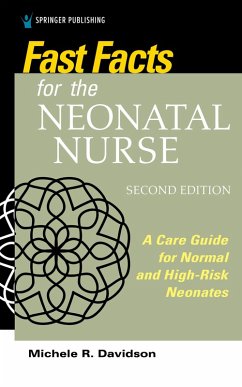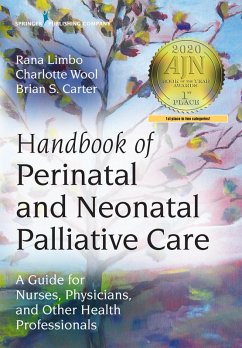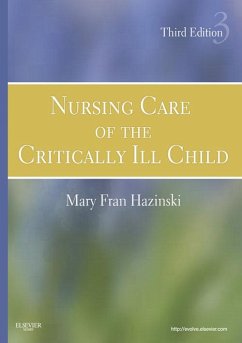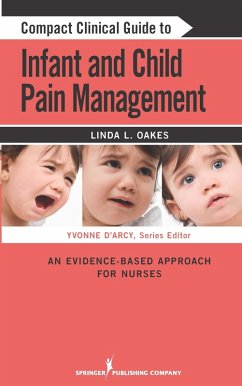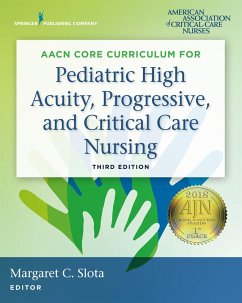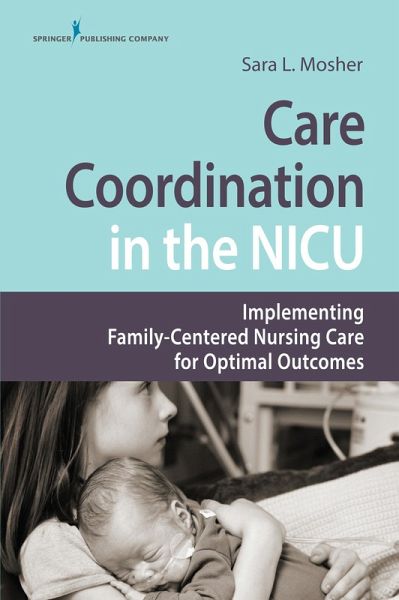
Care Coordination in the NICU (eBook, ePUB)
Implementing Family-Centered Nursing Care for Optimal Outcomes

PAYBACK Punkte
22 °P sammeln!
Focuses on nurturing the emotional health of patients and families to ensure improved outcomesThis innovative clinical practice resource for neonatal nurses embodies family-centered care strategies for optimal outcomes through every phase of the NICU experience. While rigorous programs provide the knowledge and skills to care for the physical needs of high-risk mothers and neonates, NICU practitioners often find themselves unprepared to support the emotional health of these patients and their families. Care Coordination in the NICU provides the education, inspiration, and resources to NICU hea...
Focuses on nurturing the emotional health of patients and families to ensure improved outcomes
This innovative clinical practice resource for neonatal nurses embodies family-centered care strategies for optimal outcomes through every phase of the NICU experience. While rigorous programs provide the knowledge and skills to care for the physical needs of high-risk mothers and neonates, NICU practitioners often find themselves unprepared to support the emotional health of these patients and their families. Care Coordination in the NICU provides the education, inspiration, and resources to NICU health professionals so they can learn how to be emotionally supportive to their patient's entire family unit.
The book addresses a variety of challenging patient and family issues that occur in the NICU as they relate to care coordination throughout the process. Each chapter focuses on a particular area of the perinatal/neonatal family journey, and includes current medical research, clinical examples, and recommendations for best practice alongside case studies that depict families experiencing a perinatal challenge. Most valuable of all, each chapter also includes stories directly from the source, the families, who have experienced the fear, isolation, and uncertainly of an NICU experience, and have greatly benefited from the emotional support of caring practitioners.
Key Features:
This innovative clinical practice resource for neonatal nurses embodies family-centered care strategies for optimal outcomes through every phase of the NICU experience. While rigorous programs provide the knowledge and skills to care for the physical needs of high-risk mothers and neonates, NICU practitioners often find themselves unprepared to support the emotional health of these patients and their families. Care Coordination in the NICU provides the education, inspiration, and resources to NICU health professionals so they can learn how to be emotionally supportive to their patient's entire family unit.
The book addresses a variety of challenging patient and family issues that occur in the NICU as they relate to care coordination throughout the process. Each chapter focuses on a particular area of the perinatal/neonatal family journey, and includes current medical research, clinical examples, and recommendations for best practice alongside case studies that depict families experiencing a perinatal challenge. Most valuable of all, each chapter also includes stories directly from the source, the families, who have experienced the fear, isolation, and uncertainly of an NICU experience, and have greatly benefited from the emotional support of caring practitioners.
Key Features:
- Examines the gamut of challenging patient and family issues that occur in the NICU as they relate to care coordination throughout the process
- Helps practitioners to incorporate family-centered care into their daily practices
- Discusses effective listening and communication strategies for families in crisis
- Includes examples of practice improvement strategies to improve clinical outcome and reduce the risk of re-hospitalization
- Provides a Case-Based Learning section depicting real-world scenarios for discussion and problem-solving
- Includes links to abundant resources and educational material
- Contains chapters on palliative care and bereavement and supporting patients with special challenges.
Dieser Download kann aus rechtlichen Gründen nur mit Rechnungsadresse in A, D ausgeliefert werden.





